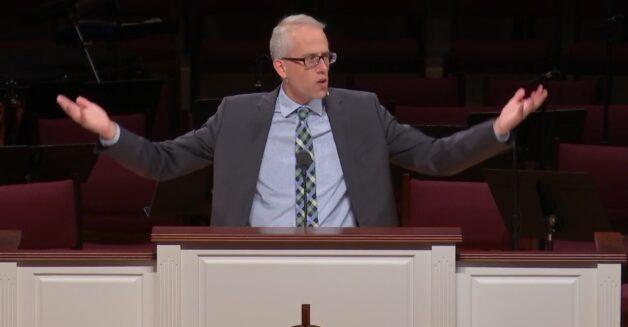
The apostle Paul’s first letter to the Thessalonians (4:3) is remarkably clear and straightforward: “For this is God’s will, your sanctification.”
If you want to know what God’s will is for your life, there it is in black and white. Live a life pleasing to God (v. 1). Keep away from sexual immorality (v. 3). Let the man of God control his own body in holiness and honor (v. 4). Do not take advantage of a brother or sister (v. 6). You don’t have to wonder about hitting the bullseye of God’s will or walking some spiritual tightrope as you try to intuit special messages from the Lord. We can all know God’s calling. “God has not called us to impurity but to live in holiness” (v. 7).
The will of God is one of the most confusing concepts in the Christian life. Part of this confusion stems from the fact that the Bible talks about God’s will in at least two different ways.
Some passages speak of God’s will as fixed and inviolable. We can call this God’s will of decree. God’s works all things after the counsel of His will (Eph. 1:11). God does what He wants, and no one can block His hand (Dan. 4:35). God will of decree includes what is good (Eph. 2:10), what is wicked (Acts 2:23; 4:28; Gen. 50:20); where we live (Acts 17:26), and how long we live (Job 14:5; Psalm 39:4). Neither sparrows in the sky nor the hairs on our head fall to the ground apart from the will of our heavenly Father (Matt. 10:28-30).
Other passages speak of God’s will as something we can obey or disobey. We can call this God’s will of desire. There aren’t two wills in God, but the Bible does use the same language in two different ways. In 1 John 2:15-17, for example, the will of God is the opposite of the lust of the flesh, the lust of the eyes, and the pride in one’s possessions. Likewise, Jesus teaches that “only the one who does the will of my Father in heaven” will enter the kingdom (Matt. 7:21). In passages like these, the will of God refers to the way God wants us to live.
To make matters more complicated, when Christians talk about “finding the will of God” they are usually thinking about a mysterious will of direction. The Bible, however, does not speak of God’s will in this way. Yes, God has a specific plan for each of our lives (Ps. 139:16), but there is no indication that he ordinarily means to reveal this plan to us ahead of time. Instead, He wants us to trust Him. We don’t have to know the future because we belong to the God who not only knows the future but exercises sovereign control over it.
Embracing the will of God is not about discerning—by some nebulous process of inner impressions—where to live, whom to marry, and what job to take. Rather, it is about the far more ordinary, and ultimately more important and more spiritual task, of seeking first the kingdom of God and His righteousness, all the while believing that whatever you truly need will be provided for you (Matt. 6:33).
This article appears in the CSB Men's Daily Bible.



